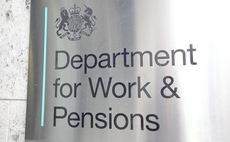Stuart Sumner explains why failing to properly invest in cyber security isn't an economy, it's a gamble
The £650m over four years that the government allocated to cyber security in 2010 was recently branded "embarrassing" by Bob Ayres, a former intelligence officer at the US Department of Defense, in...
To continue reading this article...
Join Computing
- Unlimited access to real-time news, analysis and opinion from the technology industry
- Receive important and breaking news in our daily newsletter
- Be the first to hear about our events and awards programmes
- Join live member only interviews with IT leaders at the ‘IT Lounge’; your chance to ask your burning tech questions and have them answered
- Access to the Computing Delta hub providing market intelligence and research
- Receive our members-only newsletter with exclusive opinion pieces from senior IT Leaders





















